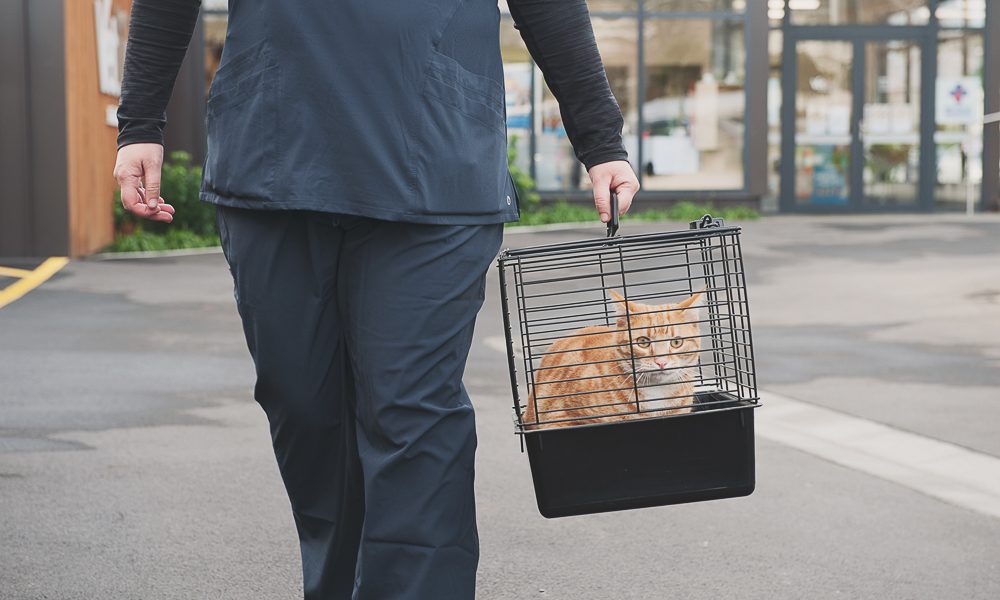
It’s coming close to that time of year where many families pack their bags and travel around Aotearoa for the holiday season. For some of our furry friends, that means they’ll be staying at a pet boarding facility, such as a cattery or kennels. This can be a very stressful experience for some animals, especially for ones that have never experienced a pet boarding facility before.
It’s important to start preparing several weeks before your planned trip to ensure your pets have the most pleasant experience possible.
It’s coming close to that time of year where many families pack their bags and travel around Aotearoa for the holiday season. For some of our furry friends, that means they’ll be staying at a pet boarding facility, such as a cattery or kennels. This can be a very stressful experience for some animals, especially for ones that have never experienced a pet boarding facility before.
It’s important to start preparing several weeks before your planned trip to ensure your pets have the most pleasant experience possible.
How to help your pets have a happy stay
Ensuring your pet is in good health should be a number one priority before leaving them at a pet boarding facility. Schedule an annual health check/vaccination appointment with your local veterinary clinic to have a brief consultation and comprehensive examination to review your pet’s health, wellbeing and vaccination status prior to the holiday season. This should be done at least once a year and may pick up on conditions that may have otherwise have been missed.
If your pet needs any ongoing medications, they need to be seen at least every six months for repeat prescriptions, as per NZ law. Most pet boarding staff are capable of giving medications to your pet while you’re gone, but make sure to let them know what your pet needs, if applicable, ahead of time.
What vaccines do dogs need at a kennels?
When you book your pets stay at a pet boarding facility, make sure to check the vaccination requirements. For dogs, most facilities require a current core vaccination and a kennel cough vaccination, which protects against Bordetella bronchiseptica and several common viruses. Most businesses are happy as long as your pet is current within the past year for kennel cough. However, there are some kennels that require a six-monthly vaccination or do not allow vaccination within a week of their stay, so make sure to check when booking.
What vaccines do cats need for a cattery?
For cats that frequent catteries or other pet boarding facilities, it is recommended that an annual flu booster is given along with their three-yearly “core” vaccine. Businesses will want to make sure they’ve had their core vaccine within the past one to three years, depending on the vaccine protocol for the area.
If you’re unsure when your pet was last vaccinated, give your local veterinary clinic a call to check your records. You may also have it written down in your vaccination book, if you remembered to take it to your last vaccination appointment. If you’ve lost your vaccine book, you can easily request a new one to verify the vaccine status of your pet.
4 tips for boarding a dog with separation anxiety
Desensitisation to other animals and getting used to being left alone is another essential part of leaving your dog at a pet boarding facility. For dogs that experience separation anxiety, this is something you’ll need to get on top of sooner rather than later.
1. If the problem is mild give your dog a special treat each time you leave (like a puzzle toy stuffed with peanut butter). Only give them this treat when you’re gone, and take it away when you get home.
2. Make your comings and goings low-key without a lot of greeting. Ignore your pup for the first few minutes after you get home.
3. Leave some recently worn clothes out that smell like you.
4. Consider giving your pet over-the-counter natural calming supplements like Calmex, Adaptil, or Feliway (for cats). Feliway and other stress-reduction techniques are used in all Vetlife catteries.
A dog with severe anxiety won’t be distracted by even the tastiest treats, and this may be something you’ll want to talk to your vet about during your annual health check-up. They’ll be able to help identify triggers for anxiety with your pet and help you formulate a plan to slowly build up their confidence to being left alone. The same can be done with getting your pet used to other animals. It’s all about slow gradual transitions, and positive reinforcement.
Every pet is different, so have that talk with your vet to see what can be done while you still have time to make sure your pet is ready for an enjoyable stay at your local pet boarding facility.